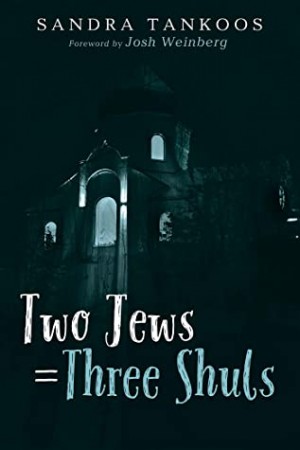What is the future of Judaism? What forces will influence the answer? What might a renewed Judaism in Israel look like politically, socially, and philosophically? Micah Goodman — an Israeli public intellectual, a celebrated author, and a senior fellow at the Shalom Hartman Institute in Jerusalem — tackles these questions by delving directly into the facets that shape the hunger for connection that he senses throughout Israel today. Goodman is a major voice for his generation, and his immense scholarship and explanation of his perspective make this an intense and satisfying read.
Goodman emphasizes the natural tension that has the nation in its grip, as it struggles to reconcile modern values with ancient traditions. He asks, what is the role of religion in the modern world? He discusses Israel’s efforts to come to terms with the traditional Orthodox Judaism that underlies the Israeli state itself and the enormous influence it exerts on all aspects of national culture and politics. He offers cogent ideas about how to bridge the religious-secular divide that defines much of Jewish thought and identity today. The book will help American readers understand what divides Israeli society and threatens the solidity of the basic tenets of lived Jewish experience. Instead of feeling that the rifts that rock the country have no solutions, readers will come away feeling hopeful.
The author explains the contradictions in the role of Zionism in defining Judaism as one that pulls us back to tradition yet pushes us forward toward new ways of defining our beliefs and practices. But where do we place religion in our contemporary way of life? Goodman tells us that it is important to stay closely in touch with the past, and that it enriches our lives in a unique way. He cites many Jewish philosophers and theologians to support his belief that staying close to our heritage is beneficial.
While Goodman is open about being part of an Orthodox congregation, he is equally able to see and embrace the values of those who are involved with less traditional Judaic practices. His views are solid but not stifling, sure-footed but not cloying. As he puts it, “Judaism is the Jews’ ongoing conversation. The conversation about Judaism is Judaism.”
Goodman is clear in spelling out the problem he will solve for us: the symphonic clash of ideas that represents Judaism itself — not whether God exists, if a revelation took place at Mount Sinai, or whether the Torah is the ultimate truth — but instead, whether one or the other set of beliefs provides a stronger, more powerful way into the future for the Jewish community.
The book is divided into four parts and contains notes and a richly detailed index. Throughout the pages, Goodman defines, tackles, and offers a resolution to the problem he has set out for us, one which he argues has a great impact on our future. Through fluid polemics and original juxtapositions, Goodman argues both for and against religion and secularism; finally, he presents us with ways to reconcile what he deems the irreconcilable. It is well worth going on the journey with him.
Linda F. Burghardt is a New York-based journalist and author who has contributed commentary, breaking news, and features to major newspapers across the U.S., in addition to having three non-fiction books published. She writes frequently on Jewish topics and is now serving as Scholar-in-Residence at the Holocaust Memorial & Tolerance Center of Nassau County.





